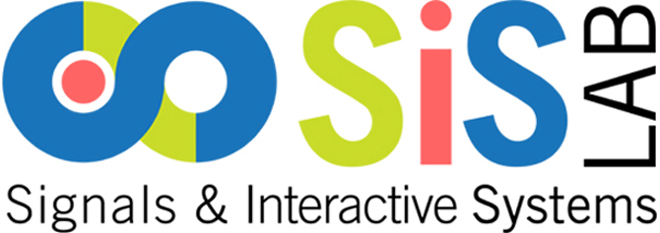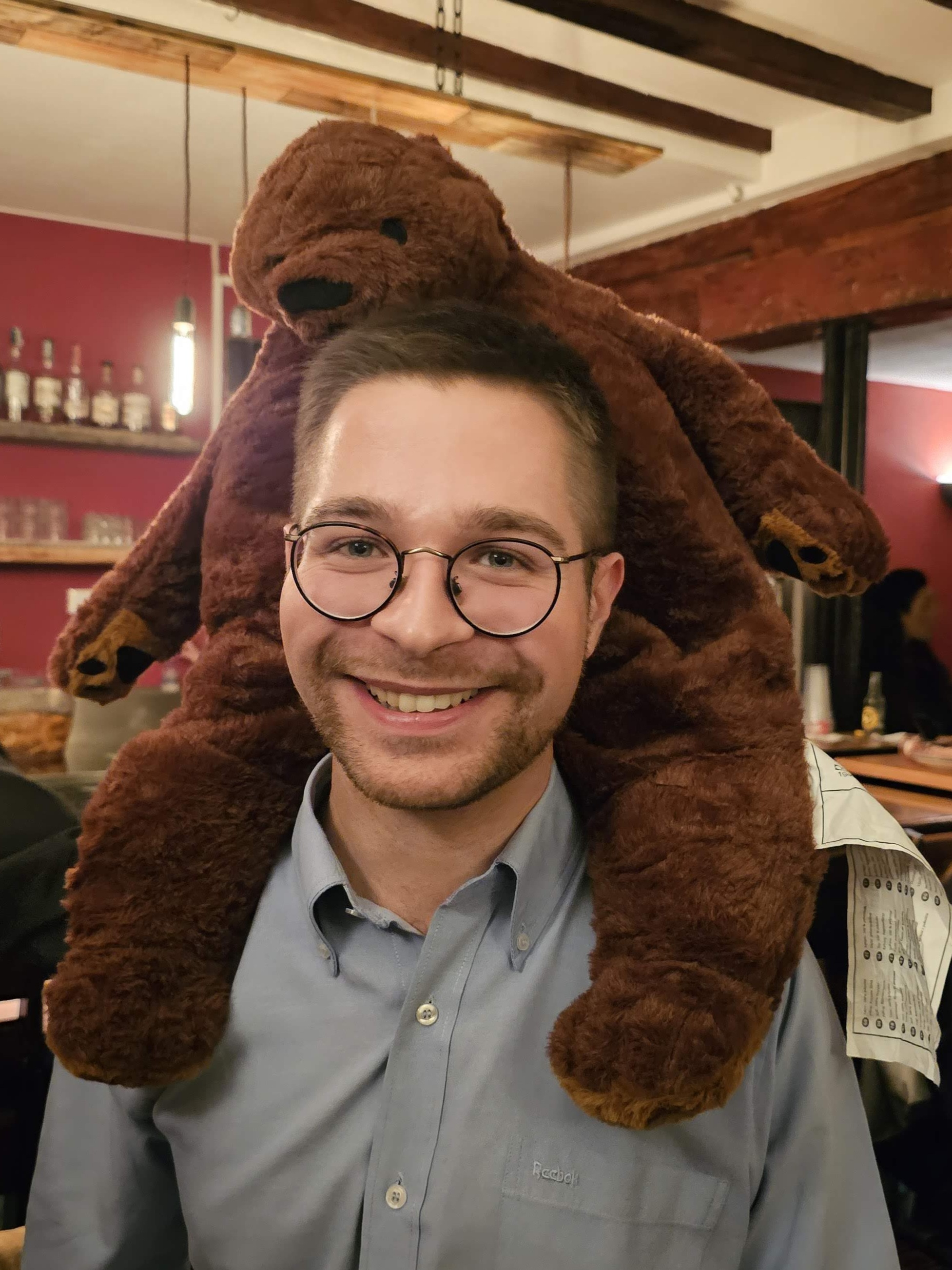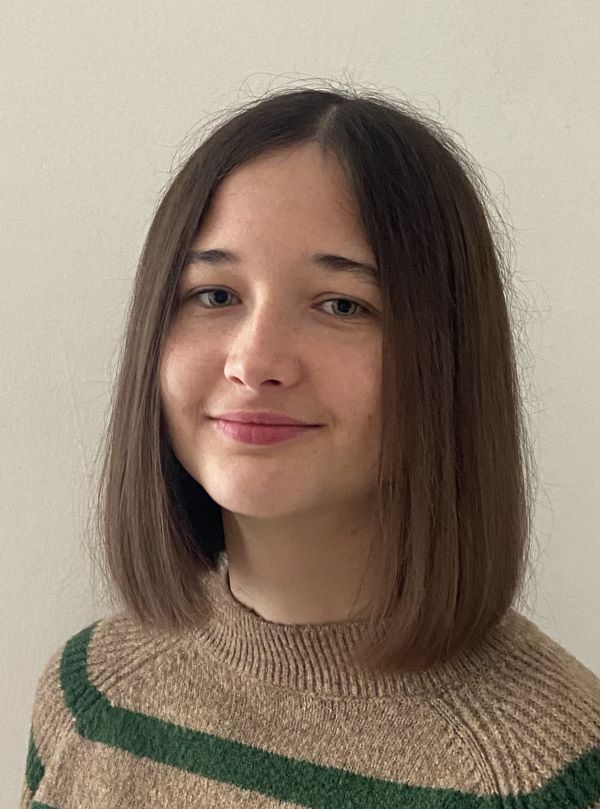-
Mousavi. M. S., Alghisi S. and Riccardi G., “ DyKnow: Dynamically Verifying Time-Sensitive Factual Knowledge in LLMs ” Proc. Empirical Methods in Natural Language Processing (EMNLP), Miami, 2024.
-
Roccabruna G., Rizzoli M. and Riccardi G., “ Will LLMs Replace the Encoder-Only Models in Temporal Relation Classification? ” Proc. Empirical Methods in Natural Language Processing (EMNLP), Miami, 2024.
-
Alghisi S., Rizzoli M., Roccabruna G., Mousavi. M. S.and Riccardi G., “ Should We Fine-Tune or RAG? Evaluating Different Techniques to Adapt LLMs for Dialogue ” Proc. International Conference on Natural Langauge Generation, Tokyo, 2024.
-
Giuliano Tortoreto and Seyed Mahed Mousavi. 2024. "Dolomites@#SMM4H 2024: Helping LLMs “Know The Drill” in Low-Resource Settings - A Study on Social Media Posts." In Proceedings of The 9th Social Media Mining for Health Research and Applications (SMM4H 2024) Workshop and Shared Tasks, pages 17–22, Bangkok, Thailand. Association for Computational Linguistics.
-
M. Ravanelli, T. Parcollet, A. Moumen, S. de Langen, C. Subakan, P. Plantinga, Y. Wang, P. Mousavi, L. Della Libera, A. Ploujnikov, F. Paissan, D. Borra, S. Zaiem, Z. Zhao, S. Zhang, G. Karakasidis, S.-L. Yeh, P. Champion, A. Rouhe, R. Braun, F. Mai, J. Zuluaga-Gomez, S. M. Mousavi, et al., “Open-source conversational ai with speechbrain 1.0” Journal of Machine Learning Research, vol. 26, 2024.
-
Q. Chen, S. M. Mousavi, G. Jacucci, and G. Riccardi, “Investigating the use and perception of blocking feature in social virtual reality spaces,” Proceedings of the ACM on Human-Computer Interaction, vol. 9, 2024.
-
Mousavi. M. S., Roccabruna G., Alghisi S., Rizzoli M., Ravanelli M. and Riccardi G.,
" Are LLMs Robust for Spoken Dialogues? " Proc. International Workshop on Spoken Dialogue Systems Technology, TALK Sapporo, 2024.
-
Mousavi. M. S., Tanaka, S., Roccabruna G., Yoshino K., Nakamura S. and Riccardi G.,
" What’s New? Identifying the Unfolding of New Events in a Narrative " ACL, Proc. 5th Workshop of Narrative Understanding, 2023.
-
Mousavi. M. S., Caldarella S. and Riccardi G.,
" Response Generation in Longitudinal Dialogues: Which Knowledge Representation Helps? " ACL, Proc. 5th Workshop on NLP for Conversational AI, 2023.
-
Roccabruna G., Mousavi. M. S. and Riccardi G.,
" Understanding Emotion Valence is a Joint Deep Learning Task" ACL, Proc. 13th Workshop on Computational Approaches to Subjectivity, Sentiment & Social Media Analysis 2023.
-
Yin M., Roccabruna G., Azad A. and Riccardi G.,
" Let's Give a Voice to Conversational Agents in Virtual Reality " Proc. INTERSPEECH, Demo Paper , VIDEO Dublin, 2023.
-
Mayor-Torres J., Medina-DeVillers S., Clarkson T., Lerner M.D., Riccardi G. , "Evaluation of interpretability for deep learning algorithms in EEG emotion recognition: a case study in autism ", Artificial Intelligence in Medicine,
Volume 143, 2023 .
-
Mousavi M., Roccabruna, Lorandi M., Caldarella S. and Riccardi G.,
" Evaluation of Response Generation Models: Shouldn’t It Be Shareable and Replicable? " EMNLP Workshop Generation, Evaluation & Metrics (GEM), 2022.
-
Bayerl S., Roccabruna G., Chowdhury A. S., Ciulli T., Danieli M., Riedhammer K. and Riccardi G.,
" What can Speech and Language Tell us About the Working Alliance in Psychotherapy "
Proc. INTERSPEECH, 2022.
-
Mousavi M., Roccabruna G., Tammewar A. Azzolin S. and Riccardi G.,
" Can Emotion Carriers Explain Automatic Sentiment Prediction?
A Study on Personal Narratives, "
ACL, 12th Workshop on Computational Approaches to Subjectivity, Sentiment & Social Media Analysis, 2022.
-
Roccabruna G., Azzolin S. and Riccardi G.,
" Multi-source Multi-domain Sentiment Analysis with BERT-based Models, "
Language Resources and Evaluation Conference, 2022.
-
Tammewar A., Bayerl P. S., Braun F., Riedhammer K. and Riccardi G.,
" Annotation of Valence for Spoken Personal Narratives, "
Language Resources and Evaluation Conference, 2022.
-
Mousavi M., Negro R. and Riccardi G.,
" An Unsupervised Approach to Extract Life-Events from Personal Narratives in the Mental Health Domain, "
Eighth Italian Conference on Computational Linguistics, 2022.
-
Danieli M., Ciulli T., Mousavi M. Silvestri G., Barbato S. Di Natale L. and Riccardi G., "Assessing the Impact of Conversational AI in the Treatment of Stress and Anxiety in Ageing Persons: A Randomized Controlled Trial Study ", Journal of Medical Internet Research (JMIR) Mental Health, Vol 9, No 9, 2022 .
-
Mayor-Torres J., Clarkson T., Hauschild K., Luhmann C. C., Lerner D. M. and Riccardi G., "Facial emotions
are accurately encoded in the brains of those with autism: A deep
learning approach", Biological Psychiatry: Cognitive Neuroscience and Neuroimaging, Volume 7, Issue 7, Pages 688-695 2022 .
-
Bayerl P. S., Tammewar A., Riedhammer K. and Riccardi G.,
" Detecting Emotion Carriers By Combining Acoustic and Lexical Representations, "
IEEE Automatic Speech Recognition and Understanding Conference, 2021.
-
Torres M. J., Ravanelli M., Medina-Devilliers S., Lerner D. M. and Riccardi G.,
" Interpretable SincNet-based Deep Learning for Emotion Recognition in Individuals with Autism, "
IEEE Conf. Engineering in Medicine and Biology, Conference, 2021.
-
Tammewar A., Cervone A. and Riccardi G.,
" Emotion Carrier Recognition from Personal Narratives "
Proc. INTERSPEECH, 2021.
-
Mousavi M., Cervone A., Danieli M. and Riccardi G.,
" Would you like to tell me more?
Generating a corpus of psychotherapy dialogues "
NAACL, Workshop on NLP for Medical Conversations, 2021.
-
Roccabruna G., Cervone A. and Riccardi G.,
" Multifunctional ISO standard Dialogue Act tagging in Italian "
Seventh Italian Conference on Computational Linguistics, 2021.
-
Danieli M., Ciulli T, Mousavi M. and Riccardi G., "A Participatory Design of Conversational
Artificial Intelligence Agents for Mental Healthcare", Journal of Medical Internet Research (JMIR)
Formative Research, Vol 5, No 12, 2021 .
-
Cervone A. and Riccardi G.,
" Is This Dialogue Coherent ? Learning From Dialogue Acts and Entities " SIGDial, Idaho*, 2020.
-
Tammewar A., Cervone A.,Eva-Maria Messner, Riccardi G.,
"Annotation of Emotion Carriers in Personal Narratives", Proc. Language Resources and
Evaluation Conference , Marseille*, 2020.
-
Dubiel M., Cervone A., Riccardi G.,
" Inquisitive Mind: A Conversational News Companion " Proc. 1st International Conference on Conversational User Interface, Dublin, 2019.
-
Tammewar A., Cervone A., Messner E., Riccardi G.,
" Modeling User Context for Valence Prediction From Narratives " Proc. INTERSPEECH, Graz, 2019.
-
Coman C. A., Yoshino K., Murase Y., Nakamura S., Riccardi G.,
" An Incremental Turn-Taking Model For Task-Oriented Dialog Systems " Proc. INTERSPEECH, Graz, 2019.
-
Marinelli F., Cervone A., Tortoreto G., Stepanov E. A., Di Fabbrizio G., Riccardi G.,
" Active Annotation: Bootstrapping Annotation Lexicon and Guidelines for
Supervised NLU learning " Proc. INTERSPEECH, Graz, 2019.
-
Tortoreto G., Stepanov E. A., Cervone A., Dubiel M., Riccardi G.,
" Affective Behaviour Analysis of On-line User Interactions: Are On-line Support Groups more Therapeutic than Twitter? " Association for Computational Linguistics Conference, Workshop on Social Media Mining for Health Applications, Florence, 2019.
-
Mayor Torres, J.M., Clarkson, T., Luhmann, C. C., Riccardi, G., Lerner, M.D.,
" Distinct but Effective Neural Networks for Facial Emotion Recognition in Individuals with Autism: A Deep Learning Approach " Annual Meeting of the International Society for Autism Research, Montreal, 2019.
-
Chowdhury S. A., Stepanov E. A., Danieli M. and Riccardi G.,"Automatic Classification of Speech Overlaps: Feature Representation and Algorithms", Computer Speech and Language, May , v. 55, pp. 145-167, 2019.
-
Alam F., Danieli and Riccardi G., "Automatic Labeling Affective Scenes in Spoken Conversations" , Cognitive Infocommunications, theory and applications ", R. Klempous et al. (eds.), Cognitive Infocommunications, Theory and Applications, Springer Verlag, 2019.
-
Gobbi J., Stepanov E. A. and Riccardi G.,
" Concept Tagging for Natural Language Understanding: Two Decadelong Algorithm Development " Fifth Italian Conference on Computational Linguistics
, Turin, 2018.
-
Cervone A., Gambi E., Tortoreto G., Stepanov E. A., and Riccardi G.,
" Automatically Predicting User Ratings for Conversational Systems " Fifth Italian Conference on Computational Linguistics
, Turin, 2018.
-
Ghosh A., Stepanov E. A., Mayor Torres, J.M., Danieli M. and Riccardi G.,
" HEAL: A Health Analytics Intelligent Agent Platform for the acquisition
and analysis of physiological signals " IEEE 20th International Conference on e-Health Networking, Applications and Services (Healthcom), Ostrava, 2018.
-
Stepanov E. A., Lathuilierev S., Chowdhury S. A., Ghosh A., Vieriu R.D., Sebe N. and Riccardi G.,
" Depression Severity Estimation from Multiple Modalities " IEEE 20th International Conference on e-Health Networking, Applications and Services (Healthcom), Ostrava, 2018. EXCELLENT Paper AWARD
-
Cervone A., Stepanov E. A. and Riccardi G.,
" Coherence Models for Dialogue " Proc. INTERSPEECH, Hyderabad, 2018.
-
Mezza S., Cervone A., Stepanov E. A., Tortoreto G. and Riccardi G.,
" ISO-Standard Domain-Independent Dialogue Act Tagging for Conversational Agents " Conference on Computational Linguistics (COLING), Santa Fe, 2018.
-
Dias R., Conboy M. H., Gabany M. J., Clarke A. L. , Osterweil J. L., Avrunin S. G., Arney D., Goldman M. J., Riccardi G., Yule J. S., Zenati A. M.,
" Development of an Interactive Dashboard to Analyze Cognitive Workload of Surgical Teams During Complex Procedural Care " IEEE Conf. on Cognitive and Computational Aspects of Situation Management, Boston, 2018.
-
Dias RD, Conboy HM, Gabany JM, Clarke LA, Osterweil LJ, Arney D, Goldman JM, Riccardi G, Avrunin GS, Yule SJ, Zenati MA.,
" Intelligent Interruption Management System to Enhance Safety and Performance in Complex Surgical and Robotic Procedures" Proc. Workshop on OR 2.0 , Context-Aware Operating Theaters, Computer Assisted Robotic Endoscopy, Clinical Image-Based Procedures, and Skin Image Analysis , Grenada 2018
-
Mayor Torres, J.M., Clarkson, T., Stepanov E. A. , Luhmann C. C., Lerner, M.D., Riccardi, G.,
" Enhanced Error Decoding from Error-Related Potentials using
Convolutional Neural Networks " IEEE Conf. Engineering in Biology and Medicine
Society, Honolulu, 2018.
-
Mayor Torres, J.M., Libsack, E.J., Clarkson, T., Keifer, C.M., Riccardi, G., Lerner, M.D.,
"EEG-based Single trial Classification Emotion Recognition: A Comparative Analysis in Individuals with and without Autism Spectrum Disorder " Annual Meeting of the International Society for Autism Research, Rotterdam, 2018.
-
Riccardi, G. and Bangalore, S.,
" Automatic
acquisition of phrase grammars for stochastic language modeling " Proc.
6th ACL Workshop on Very Large Corpora, Montreal, 2018.
-
Alam F., Danieli M. and Riccardi G.,"Annotating and Modeling Empathy in Spoken Conversations", Computer Speech and Language, July , v. 50, pp. 40-61, 2018.
-
Stepanov A. E., Chowdhury A. S., Bayer A. O., Ghosh A., Klasinas I., Calvo M., Sanchis E. and Riccardi G. , "Cross-Language Transfer of Semantic Annotation via Targeted Crowdsourcing: Task Design and Evaluation", Language Resources and Evaluation, 52: 341. https://doi.org/10.1007/s10579-017-9396-5 , Springer, 2018
-
Cervone A., Tortoreto G., Mezza S., Gambi E. and Riccardi G.,
"Roving Mind: a balancing act between open–domain
and engaging dialogue systems ", 1st Alexa Prize Conference, Las Vegas, 2017.
-
Stepanov E. A., Lathuiliere S., Chowdhury S. A., Ghosh A., Vieriu R., Sebe N.and Riccardi G.,
"Depression Severity Estimation from Multiple Modalities", AVEC Challenge, 2017.
-
Cervone A., Stepanov E. A., Celli F., and Riccardi G.,
"Irony Detection: from the Twittersphere to the News
Space", Fourth Italian Conference on Computational Linguistics
, Rome, 2017.
-
Ghosh A., Stepanov E.
A., Danieli M., and Riccardi G., "Are You Stressed? Detecting High
Stress from User Diaries", IEEE International Conference
on Cognitive Infocommunications, Debrecen, 2017.
-
Singla K., Stepanov A. E., Bayer A. O., Riccardi G.
and Carenini G., "Automatic Community Creation for Abstractive
Spoken Summarization", EMNLP 2017 Workshop on New Frontiers in
Summarization, Copenhagen, 2017.
-
Chowdhury A. S., Stepanov E. A.,
Danieli
M.. and Riccardi G., "Functions of Silences towards
Information Flow in Spoken Conversation", EMNLP 2017 Workshop on Speech-Centric
Natural Language Processing, Copenhagen, 2017
-
Bayer A. O., Stepanov A. E. and Riccardi G.,
"Towards End-to-End Spoken
Dialogue Systems", Proc. INTERSPEECH , Stockholm,
2017
-
Tortoreto G.,
Ghosh A., Stepanov E. A., Danieli M.. and Riccardi G., "
Affective Behaviour Analysis of User Interactions in Support
Web Group", European Congress of Psychology, Amsterdam ,
2017.
-
Chowdhury A. S. and
Riccardi G.,"A Deep Learning Approach To Modeling
Competitiveness In Spoken Conversations", ICASSP, New Orleans,
2017.
-
Mogessie A. M., Ronchetti M., Riccardi G., "Exploring the Role of Online Peer-Assessment as a Tool of Early Intervention", In Wu, Gennari, Huang, Xie and Cao Y. (eds) Emerging Technologies for Education, Lecture Notes in Computer Science, vol 10108, pp. 635-644, 2017.
-
Celli F., Stepanov E.
A., Poesio M. and Riccardi G., "Predicting Brexit: Classifying Agreement is Better than
Sentiment and Pollsters" , PEOPLES Workshop at , Osaka
2016.
-
Alam F., Celli F.,
Stepanov E. A., Ghosh A. and Riccardi G., "The Social Mood of News:
Self-reported Annotations to Design Automatic Mood Detection
Systems" , PEOPLES Workshop at Conference on Computational Linguistics (COLING), Osaka
2016.
-
Alam F. , Chowdhury
A. S. , Danieli M.. and Riccardi G., "How Interlocutors
Coordinate with each other within Emotional Segments?",
Conference on Computational Linguistics (COLING), Osaka, 2016.
-
Alam F. , Danieli M.. and Riccardi G., "
Can We Detect Speakers' Empathy? A Real-Life
Case Study", IEEE International Conference on Cognitive
Infocommunications, Wrocław, 2016.
-
Mogessie M., Ronchetti M. and Riccardi G.,,
"Exploring the Role of
Online Peer-Assessment as a Tool of Early Intervention",
International Conference on Web-based Learning, Rome,
2016.
-
Chowdhury A. S. ,
Stepanov E. A. and Riccardi G., "Predicting User
Satisfaction from Turn-Taking in Spoken Conversations",
INTERSPEECH, San Francisco, 2016.
-
Mayor J. M., Ghosh A., Stepanov E. A. and
Riccardi G., "HEAL-T: An Efficient PPG-based
Heart-Rate And IBI Estimation Method During Physical
Exercise", EUSIPCO, Budapest, 2016
-
Celli F., Stepanov E. A. , Riccardi G,
"Tell me who you are,
I’ll tell whether you agree or disagree: Prediction of
agreement/disagreement in news blogs", IJCAI, Workshop on
Natural Language Processing Meets Journalism, New York,
2016.
-
Stepanov E. A. and
Riccardi G., "The UniTN End-To-End Discourse
Parser in CoNLL 2016 Shared Task", Conference on Computational
Natural Language Learning, Berlin, 2016.
-
Schenk N., Chiarcos C., Donandt K.,
Rönnqvist S., Stepanov E. A. and Riccardi G.,
"Do We Really Need All
Those Rich Linguistic Features? A Neural Network-Based Approach to
Implicit Sense Labeling", Conference on Computational
Natural Language Learning, Berlin, 2016.
-
Mogessie M., Ronchetti M. and Riccardi
G.,"Predicting Student
Progress from Peer-Assessment Data", Educational Data Mining
Conference Raleigh, USA,2016
-
Danieli M., Ghosh A., Berra E., Fulcheri
C., Rabbia F., Testa E., Veglio F., Riccardi G., "Automatically
classifying essential arterial hypertension from physiological and daily
life stress responses." ESH 2016 – The 26th European
Meeting on Hypertension and Cardiovascular Protection, Paris, France,
June 10 -13 2016.
-
Mayor J. M., Stepanov E. A. and Riccardi
G.,"EEG Semantic Decoding Using Deep Neural
Networks", Workshop on Concepts, Actions and Objects, Rovereto,
2016.
-
Celli F., Riccardi G.
and Alam F., "Multilevel Annotation of Agreement and Disagreement in
Italian News Blogs", Proc. Language Resources and
Evaluation Conference , Portroz, 2016.
-
Chowdhury A. S., Stepanov E. A. and Riccardi G.,
"Transfer of Corpus-Specific Dialogue Act Annotation to ISO
Standard: Is it worth it ?", Proc. Language Resources and
Evaluation Conference , Portroz, 2016.
-
Danieli M., Balamurali A. R., Stepanov E. A., Favre
B., Bechet F. and Riccardi G., "Summarizing Behaviors: An Experiment on the Annotation of
Call-Centre Conversations", Proc. Language Resources and
Evaluation Conference , Portroz, 2016.
-
Riccardi G., Stepanov E. A. and Chowdhury A. S.
"Discourse Connective Detection in
Spoken Conversations", ICASSP, Shanghai,
2016.
-
Bayer A. O. and Riccardi G.,"Semantic language models with deep neural networks", Computer Speech and Language, May , v. 40, pp. 1-22, 2016.
-
Riccardi G., Bechet F., Danieli M., Favre B., Gaizauskas R., Kruschwitz and Poesio M., "The SENSEI Project: Making Sense of Human Conversations", Lecture Notes on Artificial Intelligence, J.F. Quesada et al. ( Eds) , vol. 9577, pp. 10-33, 2016.
-
Parodi S, Riccardi G, Castagnino N, Tortolina L, Maffei M, Zoppoli G, Nencioni A, Ballestrero A, Patrone F : "Systems Medicine in Oncology: Signaling-Networks Modeling and New Generation Decision-Support Systems", in Methods in Molecular Biology, Vol. 1386, Schmitz U and Wolkenhauer O (Eds): Systems Medicine, Springer , 2016.
-
Stepanov E. A., Favre
B., Alam F., Chowdhury A. S., Singla K., Trione J., Bechet F. and
Riccardi G., "Automatic Summarization of
Call-Center Conversations", IEEE ASRU, Scottsdale, 2015. (
Demo
)
-
Danieli M., Ghosh A,
Berra E., Testa E., Rabbia F., Veglio F. and Riccardi G.,
"Comprendere
l’Ipertensione Arteriosa Essenziale A Partire da Costrutti
Psicologici e Segnali Fisiologici", XXXI Congresso Societa’
Italiana Ipertensione Arteriosa, Bologna, 2015.
(Poster)
-
Danieli M. , Riccardi
G. and Alam F., "Emotion Unfolding and Affective Scenes: A Case Study in
Spoken Conversations" , ICMI Workshop on Representations and
Modelling for Companion Systems, Seattle, 2015. VIDEO
-
Stepanov E. A. and Riccardi G., "Sentiment
Polarity Classification with Low-level Discourse-based
Features", Proc. Italian Conference on Computational Linguistics
,
Trento, 2015.
-
Favre B., Stepanov E.
A., Trione J. , Bechet F. and Riccardi G., "Call Centre
Conversation Summarization: A Pilot Task at Multiling
2015", SigDial, Prague, 2015.
-
Mogessie M, Riccardi G. and Ronchetti M.,
"Predicting Students’
Final Exam Scores from their Course Activities", IEEE
Frontiers in Education, El Paso ( USA), 2015.
-
Bayer A. O. and Riccardi G., "Deep Semantic Encodings for Language Modeling",
Proc. INTERSPEECH , Dresden, 2015
-
Chowdhury A. S,, Danieli M. and Riccardi G.,
"The Role of Speakers and Context in Classifying
Competition in Overlapping Speech", Proc. INTERSPEECH , Dresden, 2015
-
Chowdhury A, Calvo M., Ghosh A., Stepanov E. A., Bayer
A. O., Riccardi G., Garcia F. and Sanchis E.,"Selection and
Aggregation Techniques for Crowdsourced Semantic Annotation
Task", Proc. INTERSPEECH , Dresden, 2015
-
Ghosh A, Danieli M. and Riccardi G.,
"Detection of Essential
Hypertension with Physiological Signals from Wearable
Devices", IEEE Conf. Engineering in Biology and Medicine
Society, Milan, 2015.
-
Ghosh A, Danieli M. and Riccardi G.,
"Annotation and Prediction of
Stress and Workload from Physiological and Inertial
Signals", IEEE Conf. Engineering in Biology and Medicine
Society, Milan, 2015.
-
Stepanov E. A., Bayer A. O. and Riccardi G.,
"The UniTN Discourse Parser in CoNLL
2015 Shared Task", CoNLL, Bejiing, 2015. Runner-up Discurse Parsing
Shared-Task
-
Chowdhury A, Danieli
M. and Riccardi G., "Annotating and Categorizing
Competition in Overlap Speech", ICASSP, Brisbane,
2015.
-
Celli F., Ghosh A., Alam F. and Giuseppe Riccardi, "In the mood for Sharing Contents: Emotions, personality and interaction styles in the diffusion of news", Information Processing and Management, Nov 2015,
-
Vinciarelli A., Esposito A., Andre’ E., Bonin F., Chetouani M., Cohn F. J., Cristani M., Fuhrmann F., Gilmartin E., Hammal Z., Heylen D., Kaiser R., Koutsombogera M., Potamianos A., Renals S., Riccardi G., Salah A. G. "Open Challenges in Modelling, Analysis and Synthesis of Human Behaviour in Human-Human and Human-Machine Interactions", Cognitive Computation, pp. 1-17, April 2015.
-
Danieli M. , Riccardi
G. and Alam F., "Annotation of Complex Emotions
in Real-Life Dialogues: The Case of Empathy" ,
Italian Conference on Computational Linguistics Pisa,
2014.
-
Celli F., Riccardi G.
and Ghosh A., "CorEA: Italian News Corpus
with Emotions and Agreement", Conferenza di Linguistica
Computazionale, Pisa, 2014.
-
Bayer A. O. and Riccardi G., "Semantic Language Models for Automatic Speech
Recognition", IEEE/ACL Workshop on Spoken Language Technology, Lake
Tahoe, 2014
-
Riccardi G.,
"Towards Healthcare
Personal Agents", ACM International Conference on Multimodal
Interaction, Workshop on Roadmapping the Future of Multimodal
Interaction Research including Business Opportuinities and Challenges,
Istanbul 2014.
-
Chowdhury A, and
Riccardi G., "Unsupervised Recognition and
Clustering of Speech Overlaps in Spoken Conversations", Workshop on
Speech, Language and Audio in Multimedia, Penang, Malaysia,
2014.
-
Chowdhury A, S.,
Ghosh A, Stepanov E. A., Bayer A. O., Riccardi G. and Klasinas I.,
"Cross-Language Transfer
of Semantic Annotation via Targeted Crowdsourcing", Proc. INTERSPEECH,
Singapore, 2014.
-
Ghosh A. and Riccardi G. , "Recognizing
Human Activities from Smartphone Signals", ACM
International Conference on Multimedia, Orlando,
2014.
-
Alam F. and Riccardi
G., "Predicting Personality
Traits using Multimodal Information", ACM International Conference
on Multimedia, Workshop on Computational Personality Recognition,
Orlando, 2014.
-
Mogessie M., Riccardi
G. and Ronchetti M., "A Web Based Peer Interaction Framework for
Improved Assessment and Supervision of Students", World
Conference on Educational Multimedia, Hypermedia and Telecommunications,
Tampere, 2014.
-
Stepanov E. A. and
Riccardi G., "Towards Cross-Domain PDTB-Style Discourse
Parsing", EACL Workshop on Health Text Mining and Information Analysis,
Gothenburg, 2014
-
Alam F. and Riccardi
G., "Fusion of Acoustic,
Linguistic and Psycholinguistic Features for Speaker Personality Traits
Recognition" , ICASSP, Florence, 2014.
-
Stepanov E. A., Riccardi G. and Bayer A. O.,
"The Development of the
Multilingual LUNA Corpus for Spoken Language System
Porting", LREC , Reykjavik, 2014.
-
Griol D., Callejas Z., Lopez-Cozar R. and Riccardi G. , "A Domain-Independent Statistical Methodology for Dialog Management in Spoken Dialog Systems", Computer Speech and Language, v. 28, pp. 743-768, 2014. ISCA Best Paper Award
-
Stepanov E. A., Kashkarev I., Bayer A. O., Riccardi G.
and Ghosh A., "Language Style and Domain
Adaptation for Cross-Language Porting", IEEE Workshop on Automatic
Speech Recognition and Understanding, Olomouc,
2013.
-
Bayer A. O. and
Riccardi G., "On-line Adaptation of Semantic Models for Spoken Language
Understanding", IEEE Workshop on Automatic Speech Recognition and
Understanding, Olomouc, 2013.
-
Stepanov E. A. and Riccardi G., "Comparative Evaluation of Argument Extraction Algorithms
in Discourse Relation Parsing", International Conference on Parsing
Technologies, Nara, 2013.
-
Bayer A. O. and Riccardi G., "Instance-Based On-Line Language Model
Adaptation", Proc. INTERSPEECH, Lyon, 2013.
-
Alam F. and Riccardi G., "Comparative Study of Speaker Personality Traits Recognition
in Conversational and Broadcast News Speech", Proc. INTERSPEECH,
Lyon, 2013.
-
Riccardi G., Ghosh
A., Chowdhury S. A. and Bayer A. O. , "Motivational Feedback in Crowdsourcing: a Case Study in
Speech Transcriptions", Proc. INTERSPEECH, Lyon,
2013.
-
Alam F. ,Stepanov E.
A. and Riccardi G., "Personality Traits Recognition
on Social Network - Facebook", ICWSM, Workshop on Computational
Personality Recognition, Boston, 2013
-
Garcia F., Hurtado L. F., Segarra E., Sanchis E. and
Riccardi G., "Combining Machine Translation Systems for Spoken Language
Understanding Portability", IEEE/ACL Workshop on Spoken Language
Technology, Miami, 2012
-
Bayer A. O. and Riccardi G., "Joint Language Models for Automatic Speech Recognition and
Understanding", IEEE/ACL Workshop on Spoken Language Technology,
Miami, 2012
-
Ghosh S., Riccardi G.
and Johansson R.,"Global Features for Shallow Discourse Parsing", SIGDial,
Seoul, 2012.
-
Riccardi G., Cimiano
P., Potamianos A, and Unger C., "Up From Limited Dialog Systems!", NAACL, Workshop on
Future Directions and Needs in Spoken Dialog Community, Montreal,
2012.
-
Ghosh S., Johansson
R., Riccardi G. and Tonelli S.,"Improving the Recall of a Discourse Parser by
Constraint-Based Postprocessing", LREC Istanbul,
2012.
-
Ivanov A. V. and
Riccardi G.,, " Kolmogorov-Smirnov Test for Feature Selection in Emotion
Recognition From Speech", ICASSP, Kyoto, 2012.
-
Dinarelli M., Moschitti A. and Riccardi G., `Discriminative Reranking for Spoken Language Understanding,’’ IEEE Trans. on Audio, Speech and Language Processing, vol. 20, no. 2, pp. 526-539, 2012.
-
Stepanov E. A. and Riccardi G., "Detecting General Opinions from Customer
Surveys", IEEE International Conference on Data Mining, SENTIRE
Workshop, Vancouver, 2011.
-
Ghosh S., Johansson R., Riccardi G. and Tonelli S.,
"Shallow Discourse Parsing with Conditional Random
Fields", International Joint Conference on Natural Language
Processing, Chiang Mai, Thailand, 2011
-
Ghosh S., Tonelli S., Riccardi G. and Johansson R.,
"End-to-End Discourse Parser Evaluation", IEEE
International Conference on Semantic Computing, Menlo Park, USA,
2011
-
Moschitti A.,
Chu-Carroll J., Patwardhan S., Fan J. and Riccardi G., "
Using Syntacting and Semantic
Structural Kernels for Classifying Definition Questions in
Jeopardy!", EMNLP, Edinburgh, 2011.
-
Ivanov A. V., Riccardi G., Sporka A. J. and Franc J.,
" Recognition of Personality Traits from Human Spoken
Conversations", Proc. INTERSPEECH, Florence, 2011.
-
Francesconi F., Ghosh A., Riccardi G., Ronchetti M.
and Vagin A., " Collecting Life Logs for Experience Based
Corpora", Proc. INTERSPEECH, Florence, 2011.
-
Quarteroni S., Ivanov A. V. and Riccardi G., "
Simultaneous Dialog Act Segmentation and Classification
from Human-Human Spoken Conversations ", ICASSP, Prague,
2011
-
Varges S., Riccardi
G., Quarteroni S. , and Ivanov A. V., " POMDP Concept Policies and Task Structures for Hybrid
Dialog Management" , ICASSP, Prague, 2011
-
Ludwig B., Haecker M., Schaeller R., Zenker B., Ivanov
A. V. and G. Riccardi, "Tell Me Your Needs: Assistance for
Public Transport Users", ACM SIGCHI Symposium on Engineering
Interactive Computing Systems, Pisa, 2011.
-
Han S., Dinarelli M., Raymond C., Lefevre F., Lehnen, P., De Mori R., A. Moschitti, Ney H. and Riccardi G., `Comparing Stochastic Approaches to Spoken Language Understanding in Multiple Languages,'' IEEE Trans. on Audio, Speech and Language Processing, vol. 19, no. 6, pp. 1569-1583, 2011.
-
Hakkani-Tur D. and Riccardi G., "The Data Selection Problem", Book chapter in "Spoken Language Understanding" John Wiley & Sons, LTD, 2011
-
Dinarelli M, Moschitti A. and Riccardi G.,
"Hypotheses Selection for
Re-Ranking semantic Annotation", IEEE/ACL Workshop on Spoken Language
Technology, San Francisco, 2010.
-
Quarteroni S., Gonzalez M., Riccardi G. and Varges
S., "Combining User Intention and Error Modeling for Statistical
Dialog Simulators", Proc. INTERSPEECH, Makuhari, 2010.
-
Quarteroni S. and Riccardi G., Classifying Dialog Acts in Human-Human and Human-Machine
Spoken Conversations", Proc. INTERSPEECH, Makuhari, 2010
-
Varges S., Quarteroni S. , Riccardi G. and Ivanov A.
V. , "Investigating Clarification Strategies in
a Hybrid POMDP Dialog Manager", SIGDial, Tokyo,
2010
-
Gonzalez M.,
Quarteroni S., Riccardi G. and Varges S., Cooperative User Models in Statistical Dialog
Simulators", SIGDial 2010, Tokyo 2010.
-
Dinarelli M.,Stepanov E. A.,Varges S. and Riccardi G.
"The LUNA Spoken Dialogue System:
Beyond Utterance Classification". ICASSP, Dallas,
2010.
-
Ivanov A. V.,
Riccardi G. , Ghosh S.,Tonelli S. and E. Stepanov, "Acoustic Correlates of
Meaning Structure in Conversational Speech", Proc. INTERSPEECH,
Makuhari, 2010.
-
Ivanov A. V.,
Riccardi G., "Automatic Turn Segmentation in
Spoken Conversations", Proc. INTERSPEECH, Makuhari, 2010.
-
Nguyen T. T., Moschitti A. and Riccardi G.,
"Kernel-based Reranking for Named-Entity
Extraction", Conference on Computational Linguistics (COLING), Bejing, 2010,
-
Sara Tonelli S., Riccardi G., Prasad R.
and Joshi A. "Annotation of Discourse Relations
for Conversational Spoken Dialogs", LREC Valletta,
2010.
-
Quarteroni S.,
Dinarelli M. and Riccardi G., "Ontology-Based Grounding of Spoken
Language Understanding", IEEE Workshop on Automatic Speech Recognition
and Understanding, Merano, 2009.
-
Varges S., Riccardi G., Quarteroni S., Ivanov V.,
"The
Exploration/Exploitation Trade-Off in Reinforcement Learning for
Dialogue Management", IEEE Workshop on Automatic Speech Recognition
and Understanding, Merano, 2009.
-
Varges S., Riccardi G., Quarteroni S., Ivanov V. I.
and Roberti P. "Leveraging POMDPs trained with User Simulations and
Rule-Based Dialog Management in a SDS" SIGDIAL, Demo Session, London,
2009.
-
Griol D. Riccardi G.
and Sanchis E., "A Statistical Dialog Manager for the LUNA
Project", Proc. INTERSPEECH, Brighton, 2009.
-
Griol D. Riccardi G. and Sanchis E., " Learning the Structure of Human-Computer and Human-Human
Spoken Conversations", Proc. INTERSPEECH, Brighton, 2009.
-
Quarteroni S., Riccardi G. and Dinarelli M.,
"What's in an Ontology for Spoken Language
Understanding",Proc. INTERSPEECH, Brighton, 2009.
-
Dinarelli M, Moschitti A. and Riccardi G.,
"Concept Segmentation and Labeling for Conversational
Speech", Proc. INTERSPEECH, Brighton, 2009.
-
Sporka A. J., Jakub F. And Riccardi G.,
"Can Machines Call People?- User Experience While Answering
Telephone Calls Initiated by Machine", CHI, Boston,
2009
-
Varges S., Quarteroni
S., Riccardi G., Ivanov V. I. and Roberti P., "Combining POMDPs trained with User Simulations and Rule-based
Dialogue Management in a Spoken Dialogue System" ACL, Demo Session,
Singapore, 2009.
-
Dinarelli M,
Moschitti A. and Riccardi G., "Re-Ranking Models Based on Small Training Data for Spoken
Language Understanding", EMNLP, Singapore, 2009.
-
Nguyen T. T., Moschitti A. and Riccardi G.,
"Convolution Kernels on Constituent, Dependency and Sequential
Structures for Relation Extraction", EMNLP, Singapore,
2009.
-
Coppola B., Moschitti
A., Riccardi G., "Shallow Semantic Parsing
for Spoken Language Understanding" NAACL, Boulder, Colorado,
2009.
-
Varges S., Riccardi
G., Quarteroni S., Ivanov V. I. and Roberti P. "On-Line Strategy Computation in Spoken Dialog
Systems" ICASSP, Demo Session, Singapore, 2009. VIDEO
-
Dinarelli M., Quarteroni S., Tonelli S., Moschitti A.
and Riccardi G., "Annotating Spoken Dialogs: from
Speech Segments to Dialog Acts and Frame Semantics"EACL Workshop on Semantic Representation of Spoken
Language -Athens, 2009.
-
Dinarelli M., Moschitti A. and Riccardi G.,
"Re-Ranking Models For Spoken Language
Understanding", EACL Conference, Athens, 2009.
-
Baggia P., Cutugno F., Danieli M., Pieraccini R.,
Quarteroni S., Riccardi G. and Roberti P., "The Multisite 2009 EVALITA Spoken
Dialog System Evaluation", AI*IA EVALITA Workshop, Brescia,
2009.
-
Riccardi G., Mosca
N., Roberti P. and Baggia P., "The Voice Multimodal Application Framework" AVIOS, San Diego,
2009. VIDEO
-
Bisazza A., Dinarelli
M., Quarteroni S., Tonelli S., Moschitti A., Riccardi G., "Semantic Annotations For Conversational Speech: from
speech transcriptions to predicate argument structures". IEEE/ACL Workshop
on Spoken Language Technology, Goa, 2008
-
Dinarelli M., Moschitti A., Riccardi G., "Joint Generative And
Discriminative Models For Spoken Language Understanding". IEEE/ACL Workshop
on Spoken Language Technology, Goa, 2008
-
Coppola B., Moschitti A., Tonelli S., Riccardi G.,
"Automatic FrameNet-Based Annotation of Conversational
Speech". IEEE/ACL Workshop on Spoken Language Technology, Goa,
2008
-
Sebastian V,
Riccardi G. and Quarteroni S.,"Persistent Information State in a
Data-Centric Architecture " SIGdial Workshop on Discourse and
Dialogue, Columbus, 2008.
-
Raymond C. and Riccardi G.,``Learning with Noisy Supervision for
Spoken Language Understanding'' ICASSP, Las
Vegas,2008.
-
Rodríguez K.,
Raymond C. and Riccardi G., `` Active Annotation in the LUNA Italian
Corpus of Spontaneous Dialogues'' Language Resources and
Evaluation (LREC) Conference, Marrakech, 2008.
-
De Mori R., Bechet F., Hakkani-Tur D., McTear M., Riccardi G. and Tur. G., ``Spoken Language Understanding'', IEEE Signal Processing Magazine vol. 25, pp.50-58 ,2008.
-
Riccardi G., Baggia P. and Roberti P. "Spoken Dialog Systems: From Theory to
Technology", Workshop Toni Mian, Padua, 2007.
-
Varges S. and Riccardi G., "A Data-Centric Architecture for
Data-Driven Spoken Dialog Systems", IEEE Workshop on Automatic Speech
Recognition and Understanding, Kyoto, 2007.
-
Moschitti A., Riccardi G. and Raymond, "Spoken Language Understanding with Kernels for
Syntactic/Semantic Structures", IEEE Workshop on Automatic Speech
Recognition and Understanding, Kyoto, 2007.
-
Raymond C., Riccardi G. "Generative and Discriminative Algorithms for Spoken Language
Understanding", Proc. INTERSPEECH, Antwerp, 2007.
-
Rodríguez K. J, Dipper S., Götze M.,
Poesio P., Riccardi G., Raymond C., Wisniewska J., "Standoff Coordination for Multi-Tool Annotation in a Dialogue
Corpus", ACL LAW Workshop, Prague, 2007.
-
Fogarolli A., Riccardi G, and Ronchetti M., "Searching
for in Information in Video Lectures", ED-MEDIA Conference,
Vancouver, 2007.
-
Raymond C., Riccardi
G., Rodríguez K. J. and Wisniewska J., "The LUNA Corpus: an
Annotation Scheme for a Multi-domain Multi-lingual Dialogue Corpus",
11th Workshop on the Semantics and Pragmatics of Dialogue (DECALOG'07),
Rovereto, 2007.
-
Riccardi G. and Ronchetti M.
, ``NEEDLE: Next Generation Digital Libraries, Conference of Associazione Italiana Scienze della Voce (AISV), Trento
2006.
-
Topkara M., Riccardi G., Hakkani-Tür D. Atallah
M. J., ``Natural Language Watermarking: Research Challenges and
Applications, SPIE Conference, San Diego, January,
2006.
-
Riccardi G. and Baggia P., "Spoken Dialog Systems: From Theory to Technology" SIGNUM, pp.9-20, vol. 2, Edizione della Normale di Pisa, 2006.
-
Hakkani-Tur D., Riccardi G. and Tur G., ``An Active Approach to spoken Language Processing'', ACM Transactions on Speech and Language Processing, Vol. 3, No. 3, pp 1-31, 2006.
-
Hakkani-Tur D., Bechet F., Riccardi, G. and Tur G., ``Beyond ASR 1-Best: Using Word Confusion Network'', Computer Speech and Language, volume 20, Issue 4, pp. 495-514, 2006.
-
Gupta N., Tur G., Hakkani-Tur D., Bangalore S, Riccardi G. and Rahim M., ``The AT&T Spoken Language Understanding System,'' IEEE Trans. on Audio, Speech and Language Processing, volume 14, Issue 1, pp. 213-22, 2006.
-
Liscombe J. ,
Riccardi G. and Hakkani-Tür D., ``Using Context to Improve Emotion Detection in Spoken Dialog
Systems'', Proc. INTERSPEECH, Lisbon, Sept. 2005
-
Hakkani-Tur D., Tur G., Riccardi, G. and Kim H.
K., ``Error Prediction in Spoken Dialog: from Signal-to-Noise
Ratio to Semantic Confidence Scores'', IEEE ICASSP, Philadelphia, March
2005.
-
Goffin, V.,
Allauzen, C., Bocchieri E., Hakkani-Tur D., Ljolje A.,
Parthasarathy S., Rahim M., Riccardi G. and Saraclar,
M.,``The AT&T WATSON Speech Recognizer'', IEEE ICASSP, Philadelphia,
March 2005.
-
Riccardi, G. and Hakkani-Tur D., ``Grounding Emotions in Human-Machine Conversational Systems '', Lecture Notes in Computer Science, Springer-Verlag, , pp. 144 – 154, 2005.
-
Riccardi, G. and Hakkani-Tur D., ``Active Learning: Theory and Applications to Automatic Speech Recognition,'' IEEE Trans. on Speech and Audio, vol. 13, n.4 , pp. 504-511, 2005. IEEE Signal Processing Best Paper Award
-
Potamianos A., Narayanan S and Riccardi, G. , ``Adaptive Categorical Understanding for Spoken Dialogue Systems'' IEEE Trans. on Speech and Audio, vol. 13, n.3 , pp. 321-329, 2005.
-
Bechet F., Riccardi
G.and Hakkani-Tur D., Mining Spoken dialogue Corpora for system
Evaluation and Modeling,'', EMNLP Conference, Barcelona,
2004.
-
Hakkani-Tur D., Tur
G., Rahim M. and Riccardi G.,``Unsupervised and Active Learning in
Automatic Speech Recognition for Call Classification '', ICASSP,
Montreal, May 2004.
-
Tur G., Hakkani-Tur D. and Riccardi G.,
``Extending Boosting For Call Classification Using Word Confusion
Networks '', IEEE ICASSP, Montreal, May
2004.
-
Karahan M.,
Hakkani-T|r D.,. Riccardi G.and Tur G., ``Combining Classifiers for
Spoken Language Understanding. '', IEEE ASRU, U.S. Virgin Islands, Dec.,
2003
-
Bechet F.,
Riccardi G. and Hakkani-T|r D., "Multi-channel Sentence
Classification for Spoken Dialogue Modeling", EUROSPEECH, Geneve,
Switzerland, Sept. 2003.
-
Riccardi G.and Hakkani-T|r D.,``Active and
Unsupervised Learning for Automatic Speech Recognition '',
EUROSPEECH, Geneve, Switzerland, Sept. 2003.
-
Hakkani-T|r D. and Riccardi G., `` A General Algorithm
for Word Graph Decomposition, '', IEEE ICASSP, Honk-Kong,
2003
-
Gorin, A. L., Alonso T., Abella A., Riccardi, G. and Wright, J. H., ``Semantic Information Processing of Spoken Language - How May I Help You?(sm)'' in Pattern recognition in Speech and Language Processing, CRC Press, 2003.
-
Bangalore S., Murdock
V., G. Riccardi, `` Bootstrapping Bilingual Data Using Consensus
Translation for a Multilingual Instant Messaging System '', Proc. Conference on Computational Linguistics (COLING),
Taipei, 2002.
-
Gokhan T., Wright J.,
Gorin A., Riccardi G., Tur H., `` Improving Spoken Language
Understanding Using Word Confusion Networks', ICSLP, Denver,
2002.
-
Falavigna D., Gretter
R. and Riccardi G., `` Acoustic and Word Lattice Based Algorithms
for Confidence Scores, '' Proc. ICSLP, Denver,
2002.
-
Fabbrizio G., Dutton
D., Gupta N., Hollister B., Rahim M., Riccardi G., Schapire R. and
Schroeter J., `` AT&T Help Desk, '' Proc. ICSLP, Denver,
2002
-
Rochery M., Schapire
R., Rahim M., Gupta G., Riccardi G., Bangalore S., Alshawi H and Douglas
S., `` Combining Prior Knowledge and Boosting for Call Classification in
Spoken Language Dialogue, '' Proc. IEEE ICASSP, Orlando,
2002
-
Tur D., Riccardi G.
and Gorin A. L., ``Active Learning for Automatic Speech Recognition, ''
Proc. IEEE ICASSP, Orlando, 2002
-
Bangalore S. and G. Riccardi, ``Stochastic Finite-State Models for Spoken Language Machine Translation'', Machine Translation , vol 17, n. 3, pp. 165-184, 2002 (Invited paper).
-
Gorin A, Abella A, Alonso T., Riccardi G., and Wright J., `` Automated Natural Spoken Dialog, '' IEEE Computer, vol. 35, n.4, pp. 51-56, April, 2002 (invited paper)
-
Bangalore S.and Riccardi G., ``A Finite State Approach
to Machine Translation, '' Proc. IEEE ASRU, Madonna di Campiglio, Italy,
2001 (invited paper)
-
Bangalore S., Bordel G. and Riccardi G., ``Computing
Consensus Translation from Multiple Machine Translation Systems, ''
Proc. IEEE ASRU, Madonna di Campiglio, Italy, 2001
-
Bangalore, S. and Riccardi, G., ``A Finite-State
Approach to Machine Translation, '' Proc. NAACL Conference, Pittsburgh,
June, 2001
-
Gretter R. and
Riccardi G., ``On-line learning of language models with word error
probability distributions,'' Proc. IEEE ICASSP 2001, Salt Lake City,
Utah, 7-11 May 2001.
-
Rose R. C., Yao H., Riccardi G. and Wright J. H., ``Integration of Utterance Verification with Statistical Language Modeling and Spoken Language Understanding, '' Speech Communication, 34, pp. 321-331, 2001.
-
Rahim M., Riccardi G., Saul L., Wright J., Buntschuh B. and Gorin A. L., ``Robust Numeric Recognition in Spoken Language Dialogue, '' Speech Communication, 34, pp. 195-212, 2001.
-
Bangalore, S. and Riccardi, G., ``Finite-state models
for lexical reordering in spoken language translation,''Proc. ICSLP,
Beijing, Oct. 2000.
-
Riccardi G. , ``On-line Learning of Acoustic and
Lexical Units for Domain-Independent ASR,''Proc. ICSLP, Beijing, Oct.
2000.
-
Petrovska-Delacretaz,
D, Gorin A. L., Riccardi G. and Wright J. H. , ``Detecting Acoustic
Morphemes in Lattices for Spoken Language Understanding'', Proc. ICSLP,
Beijing, Oct. 2000.
-
Rahim M., Pieraccini R., Eckert W, Levin E.,Di
Fabbrizio G., Riccardi G., Kamm C., Narayanan S., ``A Spoken Dialog
System for Conference/Workshop Services'', Proc. ICSLP, Beijing, Oct.
2000.
-
Gorin, A. L., Wright,
J. H., Riccardi, G., Abella, A. and Alonso, T., ``Semantic information
processing of spoken language,'' ATR Workshop on Multi-Lingual Speech
Communication, Oct. 2000.
-
Bangalore, S. and Riccardi, G., ``Stochastic
finite-state models for spoken language machine translation,'' Proc.
Workshop on Embedded Machine Translation Systems, NAACL, pp. 52-59,
Seattle, May 2000.
-
Riccardi, G. and Gorin, A. L., ``Spoken language adaptation over time and state in a natural spoken dialog system,'' IEEE Trans. on Speech and Audio, vol. 8, pp. 3-10, 2000.
-
Rahim M., Pieraccini R., Eckert W, Levin E.,Di
Fabbrizio G., Riccardi G., Lin C., Kamm C., ``W99- A Spoken Dialog
System for the ASRU99 Workshop,'' Proc. IEEE ASRU, Keystone,
Colorado, Dec. 1999..
-
Riccardi G,, Bangalore S. and Sarin, P., ``Learning
head-dependency relations from unannotated corpora,'' Proc. IEEE ASRU,
Keystone, Colorado, Dec. 1999.
-
Gorin, A. L., Petrovska-Delacretaz, D., Riccardi, G.
and Wright, J. H., ``Learning spoken language without transcription,''
Proc.IEEE ASRU Workshop, Colorado, 1999.
-
Conkie, A., Riccardi, G. and Rose, R. C., ``Prosody
recognition from speech utterances using acoustic and linguistic based
models of prosodic events,'' Proc. EUROSPEECH, Budapest, Hungary, Sept.
1999.
-
Potamianos, A.,
Riccardi, G. and Narayanan, S., ``Categorical understanding using
statistical N-gram models,'' Proc. EUROSPEECH, Budapest, Hungary, Sept.
1999.
-
Rose, R. C. and
Riccardi, G., ``Automatic speech recognition using acoustic confidence
conditioned language models,'' Proc. EUROSPEECH, Budapest, Hungary,
Sept. 1999.
-
Gorin, A. L. and
Riccardi, G., ``Spoken language variation over time and state in a
natural spoken dialog system,'' Proc. ICASSP, Phoenix, Mar.
1999.
-
Rose, R. C. and
Riccardi, G., ``Modeling dysfluency and background events in ASR for a
natural language understanding task,'' Proc. ICASSP., Phoenix, March
1999.
-
Rahim, M., Riccardi,
G., Wright, J., Buntschuh, B. and Gorin, A., ``Robust automatic speech
recognition in a natural spoken dialog,'' Workshop on Robust Methods for
Speech Recognition in Adverse Condition, Tampere, Finland,
1999.
-
Arai, K., Wright, J. H., Riccardi, G. and Gorin, A. L., ``Grammar fragment acquisition using syntactic and semantic clustering,'' Speech Communication, vol. 27, no. 1, Jan. 1999.
-
Gorin, A. L., Riccardi, G. and Wright, J. H., ``How May I Help You?'' in Computational Models of Speech Pattern Processing, Springer, 1999.
-
Arai, K., Wright, J.
H., Riccardi, G. and Gorin, A. L., ``Grammar fragment acquisition using
syntactic and semantic clustering,'' Proc. ICSLP, Sydney, Nov.
1998.
-
Riccardi, G.,
Potamianos, A. and Narayanan, S., ``Language model adaptation for spoken
dialog systems,'' Proc. ICSLP, Sydney, Nov. 1998.
-
Riccardi, G. and Gorin, A. L., ``Stochastic language
models for speech recognition and understanding,'' Proc. ICSLP, Sydney,
Nov. 1998.
-
Rose, R. C., Yao,
H., Riccardi, G. and Wright, J., ``Integration of utterance verification
with statistical language modeling and spoken language understanding,''
Proc. ICASSP., Seattle, May 1998.
-
Arai, K., Wright,
J., Riccardi, G. and Gorin, A., ``Grammar fragment acquisition using
syntactic and semantic clustering,'' Proc. Workshop Spoken Language
Understanding & Communication, Yokosuka, Japan, Dec.
1997.
-
Rose, R. C., Yao, H.,
Riccardi, G. and Wright, J., ``Integrating multiple knowledge sources
for utterance verification in a large vocabulary speech understanding
system,'' Proc. IEEE ASR Workshop Proc., Santa Barbara,
1997.
-
Gorin, A. L., Riccardi, G. and Wright, J. H., ``How may I help you?,'' Speech Communication, vol. 23, Oct. 1997, pp. 113-127.
-
Riccardi, G., Pieraccini, R. and Bocchieri, E., ``Stochastic automata for language modeling,'' Computer Speech and Language, vol. 10(4), 1996, pp. 265-293.
-
Bocchieri, E., Riccardi, G. and Anantharaman, J.,
``The 1994 AT&T ATIS CHRONUS recognizer,'' Proc. 1995 ARPA Spoken
Languge Technology Workshop, Austin, Texas, Jan. 1995, pp.
265-268.
-
Riccardi, G.,
Bocchieri, E. and Pieraccini, R., ``Non deterministic stochastic
language models for speech recognition,'' Proc. ICASSP, Detroit, pp.
247-250, Detroit, 1995.
-
Bocchieri, E., Levin, E., Pieraccini, R. and Riccardi, G., ``Understanding spontaneous speech,'' J. of the Italian Assoc. of Artificial Intelligence, Sept. 1995.
-
Bocchieri, E. and Riccardi, G., ``The 1993 AT&T ATIS
system,'' Proc. 1994 ARPA Spoken Language Technology Workshop,
Plainsboro, NJ, March 1994, pp. 41-42.
-
Mumolo, E., Rebelli, A. and Riccardi, G., ``Improved multipulse algorithm for speech coding by means of adaptive Boltzmann annealing,'' European Transactions on Telecommunications, vol. 5, no. 6, Nov. 1994.
-
Mian, G. A. and Riccardi, G., ``A localization property of line spectrum pairs,'' IEEE Trans. on Speech and Audio Proc., vol. 2, no. 4, pp. 536-539, Oct. 1994.
-
Bocchieri, E. and Riccardi, G., ``Use of the
forward-backward search for large vocabulary recognition with continuous
observation density HMM's,'' Proc. IEEE Workshop on Automatic Speech
Recognition, pp. 85-86, Snowbird, 1993..
-
Riccardi, G. and Mian, G. A., ``Analysis-by-synthesis
algorithms for low bitrate coding,'' IEEE Workshop on Speech Coding for
Telecommunications, Montreal, Oct. 1993.
-
Fratti, M., Mian, G. A. and Riccardi, G., ``An approach to parameter reoptimization in multipulse based coders,'' IEEE Trans. Speech & Audio Proc., vol. 1, no. 4, pp. 463-465, Oct. 1993.
-
Fratti, M., Mian, G. A. and Riccardi, G., ``On the
effectiveness of parameter reoptimization in multipulse based coders,''
Proc. ICASSP '92, San Francisco, 1992, pp. 72-77.
-
Bocchieri, E. and Riccardi, G., ``State tying of
triphone HMM's for the 1994 AT&T ARPA ATIS recognizer,'' Proc.
EUROSPEECH '95, Madrid, Sept. 1995, pp. 1499-1503.
-
Menardi, P., Mian, G. A. and Riccardi, G., ``Dynamic
bit allocation in subband coding of wideband audio with multipulse,''
Proc. EUSIPCO, Edinburgh, 1994, pp. 1449-1452.
-
Wright, J. H.,
Gorin, A. L. and Riccardi, G., ``Automatic acquisition of salient
grammar fragments for call-type classification,'' Proc. EUROSPEECH,
Rhodes, Greece, 1997, pp. 1419-1422.
-
Riccardi, G., Gorin,
A. L., Ljolje, A. and Riley, M., ``A spoken language system for
automated call routing,'' Proc. ICASSP '97, 1997, pp.
1143-1146.












